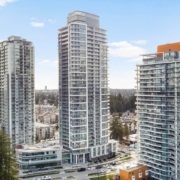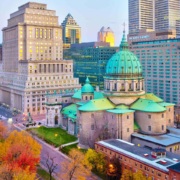Navigating Regulatory Measures for Airbnb in Nanaimo: A Comprehensive Guide
What is the Airbnb business regulation in BC?
In recent years, Airbnb has seen a surge in popularity, becoming a preferred choice of accommodation for many travelers. However, the rise in the number of Airbnb properties in cities like Nanaimo has led to the implementation of various regulatory measures. This article will provide an in-depth look into these regulations and their impact on both hosts and guests using Airbnb in Nanaimo.
Explore Short-Term Rental Operator’s Guide issued by the city authorities.
Understanding Local Bylaws for Short-term Rentals
One of the key aspects of operating an Airbnb in Nanaimo is adhering to local bylaws. These regulations often include restrictions on the number of nights per year that a property can be rented, zoning requirements, and specific licensing or permit requirements. Familiarizing yourself with these bylaws is crucial to ensure that you are operating within the legal framework. Check out information on the official website of Nanaimo.
Navigating Regulatory Measures for Airbnb in BC
Beginning on May 1, 2024, the province of British Columbia is set to introduce measures that restrict short-term rentals to the owner’s main residence, in addition to one secondary suite or accessory dwelling unit (ADU), across numerous communities within the province, including Nanaimo. The objective behind these regulations is to manage the expanding market for short-term rentals and preserve the availability of housing for local residents. These rules are slated to be enforced in municipalities throughout British Columbia that have populations exceeding 10,000, along with their adjacent communities, although there will be specific exceptions for certain types of accommodation providers and areas. Municipal authorities will have the discretion to implement even stricter local bylaws to address their unique housing challenges, necessitating compliance with both provincial and municipal regulations by the hosts. This measure demonstrates British Columbia’s dedication to achieving a balance between the advantages of tourism and the housing requirements of communities, promoting a responsible and sustainable model for managing short-term rental properties.
Obtaining a Business License for Your Airbnb
In order to legally operate an Airbnb in Nanaimo, hosts must obtain a business license. This process involves filling out an application, paying the required fee, and adhering to specific guidelines set forth by the city. Acquiring a business license is a necessary step to guarantee your Airbnb’s compliance with local regulations.
Meeting Health and Safety Standards
Airbnb hosts in Nanaimo must also adhere to health and safety regulations set forth by the city. This includes providing working smoke detectors, carbon monoxide detectors, and fire extinguishers in all rental properties. In addition, hosts must ensure that their property meets basic sanitation standards, such as providing clean linens and maintaining a pest-free environment.
Managing Noise and Parking Concerns

One common issue faced by Airbnb hosts is managing noise and parking complaints from neighbors. To mitigate these concerns, hosts should establish and enforce strict house rules regarding noise levels, quiet hours, and parking restrictions. Also, being honest with your neighbors can help you build a good relationship with them and avoid fights. Familiarize yourself with Noise Control Bylaw (1994), No. 4750 and Off-Street Parking Regulations Bylaw 2018 No. 7266.
Taxes and Insurance Considerations
Operating an Airbnb in Nanaimo requires hosts to be aware of tax implications and insurance requirements. Hosts are responsible for collecting and remitting applicable taxes, such as the Municipal and Regional District Tax (MRDT). The MRDT, or Municipal and Regional District Tax, commonly referred to as Hotel Tax, is applicable to short-term tourist accommodations. This 3% tax is charged on top of the existing 8% Provincial Sales Tax (PST). Furthermore, hosts must ensure they have the appropriate insurance coverage to protect against potential liabilities.
Navigating Strata Bylaws for Condominiums and Townhouses
For hosts who own a condominium or townhouse, understanding and abiding by strata bylaws is essential. These bylaws may restrict or prohibit short-term rentals, so it is crucial for hosts to review their strata rules before listing their property on Airbnb.
Understanding the Impact on Local Housing and Communities
The rise of Airbnb in Nanaimo has led to concerns about its impact on local housing markets and communities. Hosts should be aware of these concerns and strive to operate their Airbnb responsibly, ensuring that they do not contribute to housing shortages or negatively impact neighborhood dynamics.
Staying Updated on Regulatory Changes
As the short-term rental market continues to evolve, regulations and requirements for operating an Airbnb in Nanaimo may change. Hosts should stay informed about any updates to local bylaws and adjust their operations accordingly to maintain compliance.
Utilizing Airbnb’s Resources for Hosts
Airbnb provides numerous resources to assist hosts in understanding and complying with local regulations. Their Responsible Hosting page offers information on Nanaimo’s specific rules and best practices for hosting. Additionally, Airbnb’s Community Center connects hosts with one another, providing a platform for sharing tips and experiences related to navigating regulations.
Promoting Sustainable and Responsible Hosting Practices

To maintain a positive reputation in the community and attract responsible guests, hosts should prioritize sustainable and responsible hosting practices. This includes implementing eco-friendly measures, such as energy-efficient appliances and recycling, as well as fostering a respectful atmosphere that encourages guests to respect the property and the surrounding community.
Responding to Changing Traveler Expectations
As the travel industry evolves, so too do the expectations of Airbnb guests. Hosts should stay attuned to these changes and adapt their listings accordingly. This may involve offering amenities that cater to the needs of remote workers, providing flexible cancellation policies, or emphasizing the unique aspects of their property that appeal to niche markets.
Expanding Your Airbnb Reach Through Marketing
To maximize your Airbnb’s potential in Nanaimo, hosts should employ effective marketing strategies. This includes optimizing your listing with high-quality photos, compelling descriptions, and competitive pricing. Utilizing social media platforms and other online marketing channels can also help to increase visibility and attract potential guests.
Navigating the Regulatory Guidelines for Airbnb in Victoria, Canada
Conclusion
Operating an Airbnb in Nanaimo comes with a range of responsibilities and challenges, but by adhering to local regulations and maintaining a strong commitment to the community, hosts can ensure a positive experience for both themselves and their guests. Staying informed about regulatory measures and taking the necessary steps to comply with them will help to guarantee a successful and sustainable Airbnb business in Nanaimo.
Check out an Overview of the Airbnb Regulations in Richmond and Abbotsford Rules for Airbnb Rentals.












